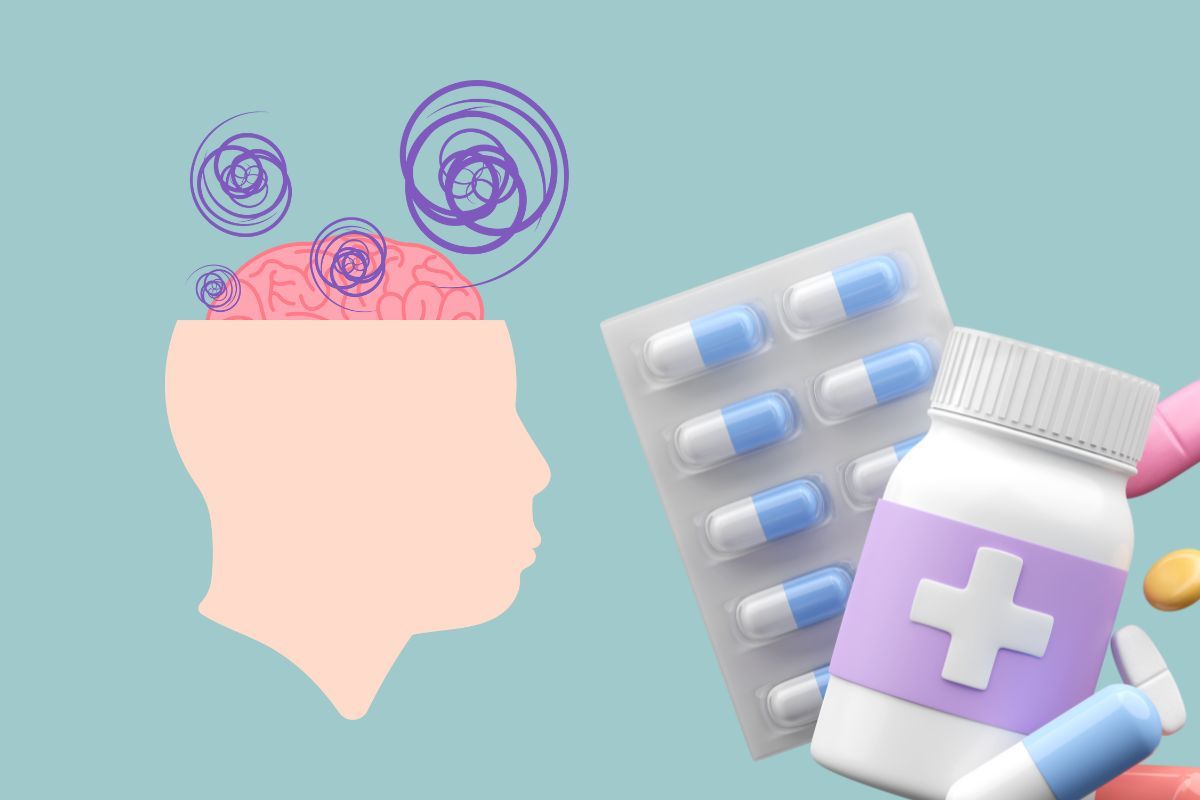Do you ever get the feeling your brain is stuck on repeat? Perhaps you repeatedly look to see if the door is locked or wash your hands excessively because you’re afraid of germs. If this is something that occurs frequently and makes your daily life difficult, it could be Obsessive-Compulsive Disorder (OCD). The best part? It can be treated, and one of the ways is with medication.
What Is OCD?
OCD is a condition that causes individuals to experience unwelcome thoughts (obsessions) and feel they have to keep performing certain tasks over and over (compulsions). To illustrate, someone might constantly keep a count going in their head or check the stove repeatedly before exiting the residence. It’s not a routine thing—it makes life stressful and exhausting.
There are different ways to manage OCD, and OCD treatment often includes OCD therapy and medication. Therapy, like Cognitive Behavioral Therapy (CBT), helps train the brain to handle obsessive thoughts without acting on compulsions. But sometimes, therapy alone is not enough, and that’s where medication comes in.
How does medication help?
Medication helps calm the brain. Imagine your brain is a radio with the volume turned up too high, making your thoughts loud and overwhelming. Medication helps lower that volume so that the thoughts don’t feel as strong or scary.
Doctors usually recommend medication when:
-
OCD is making daily life difficult
-
Therapy alone isn’t helping enough
-
Anxiety and stress are too high to manage
Types of Medication for OCD
The most popular drugs for treating OCD are known as Selective Serotonin Reuptake Inhibitors (SSRIs). These drugs help level out a brain chemical called serotonin, which influences mood and thinking.
These drugs do not treat OCD, but they make it simpler to cope with symptoms. They cause individuals to feel less anxious and suppress the need to perform compulsions.
Are medications safe?
Yes, but like any medication, they have side effects. Some individuals will experience:
-
Nausea
-
Difficulty sleeping
-
Dizziness
-
Changes in appetite
Most side effects will disappear within a few weeks. If they do not, physicians can modify the dosage or use an alternate drug.
How long does medication take to work?
Medications don’t work overnight. It takes about 4 to 6 weeks to notice an improvement. Depending on individual needs, your physician may need to experiment with your dosages and medication if the initial one is not effective.
Should You Take Medication for OCD?
This choice should be made with a physician. Medication will work for many, but it’s not always the answer. A combination of OCD treatment (such as CBT) and medication usually works best. Consultation with a physician can help determine the proper plan.
Other Methods to Accompany OCD Treatment
In addition to medication, there are some other things that you can do to assist with OCD:
Exercise: Exercise will decrease anxiety and enhance mood.
Healthy Eating: A balanced diet is beneficial to brain health.
Sleep Well: Healthy sleep patterns can significantly contribute to mental well-being.
Mindfulness and Meditation: These may be useful to calm overthinking.
Journaling: Writing things down can make them feel less daunting.
Talking to Friends and Family
It’s helpful to discuss how you feel with the people you trust. OCD is difficult, but you don’t have to face it by yourself. Your friends, family, or support group can make you feel heard and supported.
Final Thoughts
OCD is hard to endure, but there is a significant difference with treatment for OCD. Medication might be able to quiet obsessive thinking and simplify living. If you or someone with you has OCD, keep this in mind: you’re not alone, and there is assistance. With appropriate support, you can regain power and live your life happily.
Disclaimer: This content is sponsored and does not reflect the views or opinions of Ground Report. No journalist is involved in creating sponsored material and it does not imply any endorsement by the editorial team. Ground Report Digital LLP. takes no responsibility for the content that appears in sponsored articles and the consequences thereof, directly, indirectly or in any manner. Viewer discretion is advised.
Follow Ground Report on X, Instagram and Facebook for environmental and underreported stories from the margins. Give us feedback on our email id greport2018@gmail.com.
Don’t forget to Subscribe to our weekly newsletter, Join our community on WhatsApp, Follow our Youtube Channel for video stories.
Check out Climate Glossary to learn about important environmental terms in simple language.
Keep Reading
Tank under construction, dam under repair & Chanderi Village struggles for water?
Constructed wetlands can provide a solution for wastewater treatment
Indore Reviving Historic Lakes to Combat Water Crisis, Hurdles Remain
Jal Shakti Abhiyan: Catch the Rain 2024 Emphasizes Women in Water Conservation










